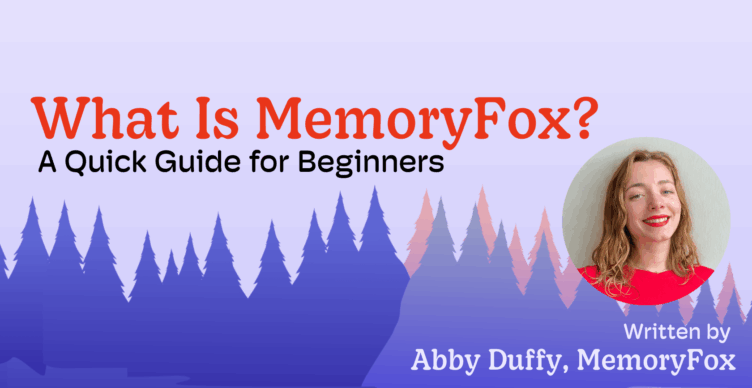Community Building, Ethical Storytelling, Storytelling Strategy
How to Share Family and Youth Stories With Integrity
“Are there unique ethical considerations for stories that involve minors and families?”
This is one of the most common topics the MemoryFox Team is asked about when discussing ethical nonprofit storytelling with our community. And while we know the short answer is an enthusiastic yes, the long answer is much more nuanced.
The thing is: Nonprofit marketers and fundraisers often turn to storytelling to inspire donors and raise funds. However, the power of these stories comes with great responsibility to ensure that the people whose stories are being shared are represented ethically, respectfully, and with their full consent.
On Wednesday, December 4th, MemoryFox hosted its fifth “Narratives With Integrity” panel, featuring four expert practitioners in the ethical storytelling space to answer your questions and share best practices. You can watch the recording now. This panel distinctly focused on the ethics behind telling stories that involve families and youth, and provided actionable advice for nonprofit professionals who want to use impact stories without exploiting the people they serve.
Here are the top takeaways from each panelist:
Consider The Power Dynamics Involved with Language & Compensation – Frank Velásquez, Jr.
You can ask any nonprofit professional – One phrase often tossed around in nonprofit board rooms is “we’ve always done it this way”. Throughout this panel appearance, Frank Velásquez, Jr., Founder of 4 Da Hood, challenged common nonprofit language, arguing that terms like “the communities we serve” or “underserved” can reinforce power imbalances and come off as paternalistic. Instead, he suggested saying “the communities we work with” to create a sense of partnership and equality. Another suggestion was focusing on a specific geographic region, instead of a group of people. For example, “working with communities in an ‘under-resourced region.’ This distinction in language separates the person from the region.
Additionally, offering compensation to your storytellers was a key point that all panelists agreed on. Although this can often be controversial, Frank stressed the importance of paying people for their time and stories, whether through gift cards, meals, or other forms of compensation. This helps shift the dynamic, ensuring that storytelling is not exploitative. He also encouraged nonprofits to discern whether someone is ready to share their story, prioritizing their well-being above all else.
Storytelling is More Than a Transaction, It’s a Collaborative, Informed Process – Amina Mohamed
For Amina Mohamed, Founder & Executive Director of Cameras for Girls, consent cannot be simplified into a “one-time, once signed form.” She ensures families understand in their own language what they’re signing, where their stories or images might be seen, and that they have the right to revoke consent at any time.
She also spoke about the importance of participatory storytelling. Instead of deciding how someone’s story should be told, Amina asks them directly, “How do you want to be represented?” This approach removes the hierarchy and centers the storyteller, ensuring they feel like they are part of the process.
Amina also shared practical advice about safety that many audience members didn’t know: geolocation data is stored automatically for photos and videos. Storytellers should be aware of this if they’ve taken photos of people who have shared their story, and disable this feature in settings. This will ensure you don’t accidentally share their location and protect their privacy and personal information.
There is a Difference Between Storytelling and Storykeeping – Demetria Lightfoot
Demetria Lightfoot, Senior Director of Philanthropy at Youth In Need, kicked-off the panel by posing a critical question: “Are we storytelling, or are we storykeeping?” She emphasized the importance of a nonprofit remembering that an individual’s story is not owed, or owned, by the nonprofit, no matter how enthusiastically they are willing to share their story. It is essential to keep the storyteller at the center of their own story, always.
Her advice is for nonprofit organizations to ask themselves, “what is the least harmful way to do something for the children or families that you are partnering with?” For example, Youth in Need never shares the names of children publicly, ensuring their privacy and safety. This is an organization-wide policy that they vehemently stick to.
FOX TIP: Is your nonprofit organization ready to create and implement an ethical storytelling policy? Check out Memoryfox’s 8 Ethical Storytelling Guide Must-Haves for Your Nonprofit to get started!
Comfort was another key theme. Demetria’s organization creates home-like settings for unhoused youth to receive services, which breaks down barriers and fosters trust. She reminded attendees to consider what makes the people they’re working with feel most at ease and never rush the storytelling process.
Ethical Storytelling Is Not Possible Without Trust & Connection – Ashley Dearinger
Ashley Dearinger, CEO & Co-Founder of I Would Rather Be Reading, emphasized the importance of building trust and engagement with families and communities. One of her standout strategies is meeting families where they are—both physically and emotionally. By attending community events like literacy nights and back-to-school programs, her team fosters relationships with families by asking genuine questions about how they can meet their families’ needs. For example, questions such as: “how can we best serve your children?” or “what resources do you need?” and being able to meet those needs, has opened the door to meaningful conversations and built trust with families.
Additionally, I Would Rather Be Reading connects with families by inviting a few families every year to breakfast or to go on a shopping spree. In these moments program staff thanked the families for letting their children come to the programs.This genuine act of kindness created a space where parents felt more comfortable sharing their stories on their own terms.
Key Themes to Take Forward
Across the panel, several recurring themes emerged:
- Consent is King: Consent should be clear, participatory and ongoing.
- Compensation Matters: Pay people for their time and stories to create an equitable exchange.
- Language Shapes Power Dynamics: Be intentional with the words you use to describe the people and communities you work with.
- Build Trust First: Relationships take time. Show up, listen, and create spaces where people feel comfortable sharing.
- Dignity First: Panelists disapproved of featuring “sad stories” at galas in order to raise funds. Moving away from this practice and toward authentically listening to the people you work with is more respectful and restores dignity to those individuals.
Overall, while impact stories can inspire donors, nonprofits must prioritize the dignity of those they work with. The panelists shared actionable strategies for ethical storytelling, from building trust with families, obtaining clear and informed consent, to taking time to consider how your language choices might affect the very communities you aim to support. Together, their insights remind us that ethical storytelling isn’t just about raising funds—it’s about honoring and empowering the people at the heart of your mission.

About the Author
Tasha Cornell-Roberts
Marketing Intern, MemoryFox
Tasha has worked in the nonprofit sector for 9 years. She has previously held positions at nonprofits such as Oxfam, Kiva and Third Sector, supporting impactful organizations both nationally and internationally outside of the U.S. She brings functional experience in fundraising, stakeholder engagement, consulting, and building cross-sector partnerships between government agencies and community-based organizations. She has experience across issues areas such as microfinance, gender equality, behavioral health, and early childhood education. She believes that authentically connecting with individuals and hearing their stories is one of the best ways to measure impact and promote change.




